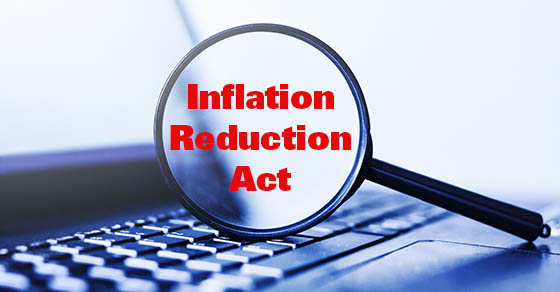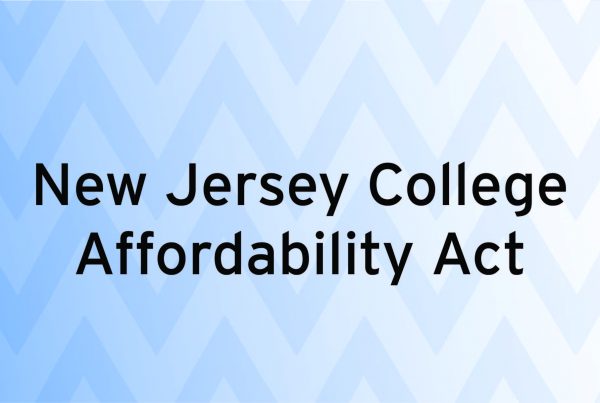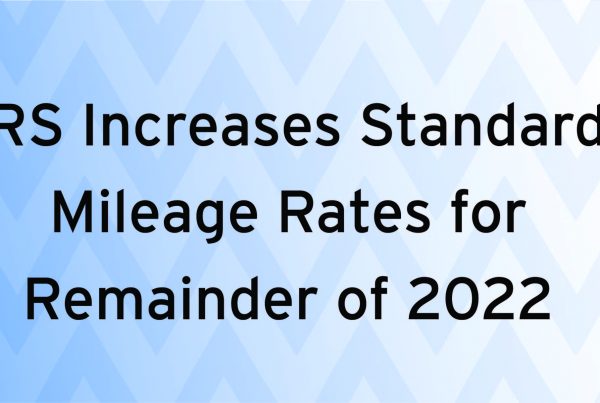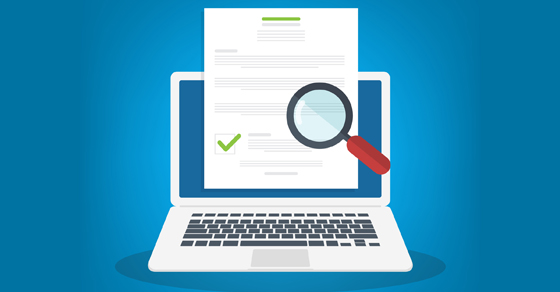
On August 16, 2022, President Biden signed into law the Inflation Reduction Act of 2022 (IRA). The scope of the legislation is much smaller than originally envisioned in the earlier Build Back Better plan. Although the IRA is smaller than Build Back Better, there are still a number of tax law changes that may affect you.
One item in IRA that has grabbed headlines is the significant increase in funding for the IRS. We will see how that funding will be deployed, but it is apparent that the government is looking for additional revenues to provide funding for an array of energy tax credits contained in the law. We expect an eventual increase in IRS enforcement efforts.
Most of the Act’s revenue raisers only impact large publicly traded companies with the new 15% Corporate Alternative Minimum tax and the new 1% excise tax on Repurchases of Corporate Stock. There is also a new excise tax on drug manufacturers for periods when they are not in compliance with drug price negotiation requirements. Individuals that own small businesses do not get away unscathed, but the effect of these changes will not affect taxpayers until 2027. The limitation on deductible business losses that is currently in effect ($250,000 individuals and $500,000 joint returns) that was scheduled to sunset as of December 31, 2026, is now extended through December 31, 2028.
The bulk of the IRA is focused on providing additional ACA healthcare subsidies and various clean energy credits for both individuals and businesses. Most are effective for tax years after December 31, 2022.
- The Act extends to 2025 the rule allowing the ACA premium tax credit to taxpayers whose household income exceeds 400% of the poverty line.
- The Act extends and expands the nonbusiness energy credit through 2032. The credit will equal 30% of the sum of the amount paid or incurred for energy-efficient improvements, the amount of residential energy property expenditures paid or incurred, and the amount paid for home energy audits. Previously, this credit was 10% of the amounts paid or incurred. The Act also increases the previous lifetime cap on the credit from $500 to a cap of $1,200 on an annual basis. This is effective for property placed in service after December 31, 2022.
- Increase in Research Credit applied against payroll tax for small businesses has been increased from $250,000 to $500,000. This provision applies to businesses with less than five million in revenue to apply up to $250,000 of Research Credit toward its Social Security payroll tax liability. The Act would allow the additional credit against Medicare payroll tax liability. This is effective for taxable years beginning after December 31, 2022
- The Act creates, extends, or modifies certain business credits for producing energy from renewable sources, clean hydrogen, and zero-emission nuclear power.
- The Act modifies the $7,500 credit for electric vehicles by requiring that the final assembly of the vehicle must occur in in North America as well as have certain percentage of battery components manufactured in North America. The Act adds both price caps to the cost of the electric vehicle – maximum MSRP of $55,000 for cars and $80,000 for vans, SUVs, and pickup trucks.
- The Act provides that the credit is allowed only once per vehicle and the credit subject to income phase outs for taxpayers with modified adjusted gross income of $300,000 for a joint return, $225,000 for heads of household and $150,000 for single taxpayers.
- For taxpayers that entered into a written binding contract to purchase a qualified vehicle in 2022 prior to the date of enactment (August 16, 2022) and placed the qualified vehicle in service on or after the enactment date, the taxpayer may elect to apply the old rules for purposes of claiming the credit. Note that under the old rules there were no purchase price limitations or income phase outs to determine eligibility for the credit.
- These changes to the Clean Vehicle Credit are generally effective for vehicles placed in service after December 31, 2022 and will expire after 2032.
- The Act creates a new credit for clean used vehicles (Sec. 25E). The credit is up to $4,000 and the sales price for the used vehicle must be $25,000 or less. This too is subject to income thresholds -$150,000 joint return, $112,500 heads of household and $75,000 singles. This credit applies to used clean vehicles acquired after December 31, 2022.
The Act is still very new and additional details will certainly be forthcoming. Many of the provisions of the Act are not effective until after December 31, 2022. As always, Maillie will bring you additional details as they arise. If you have any questions about the Inflation Reduction Act and how it applies to your individual situation, please contact your Maillie representative.




